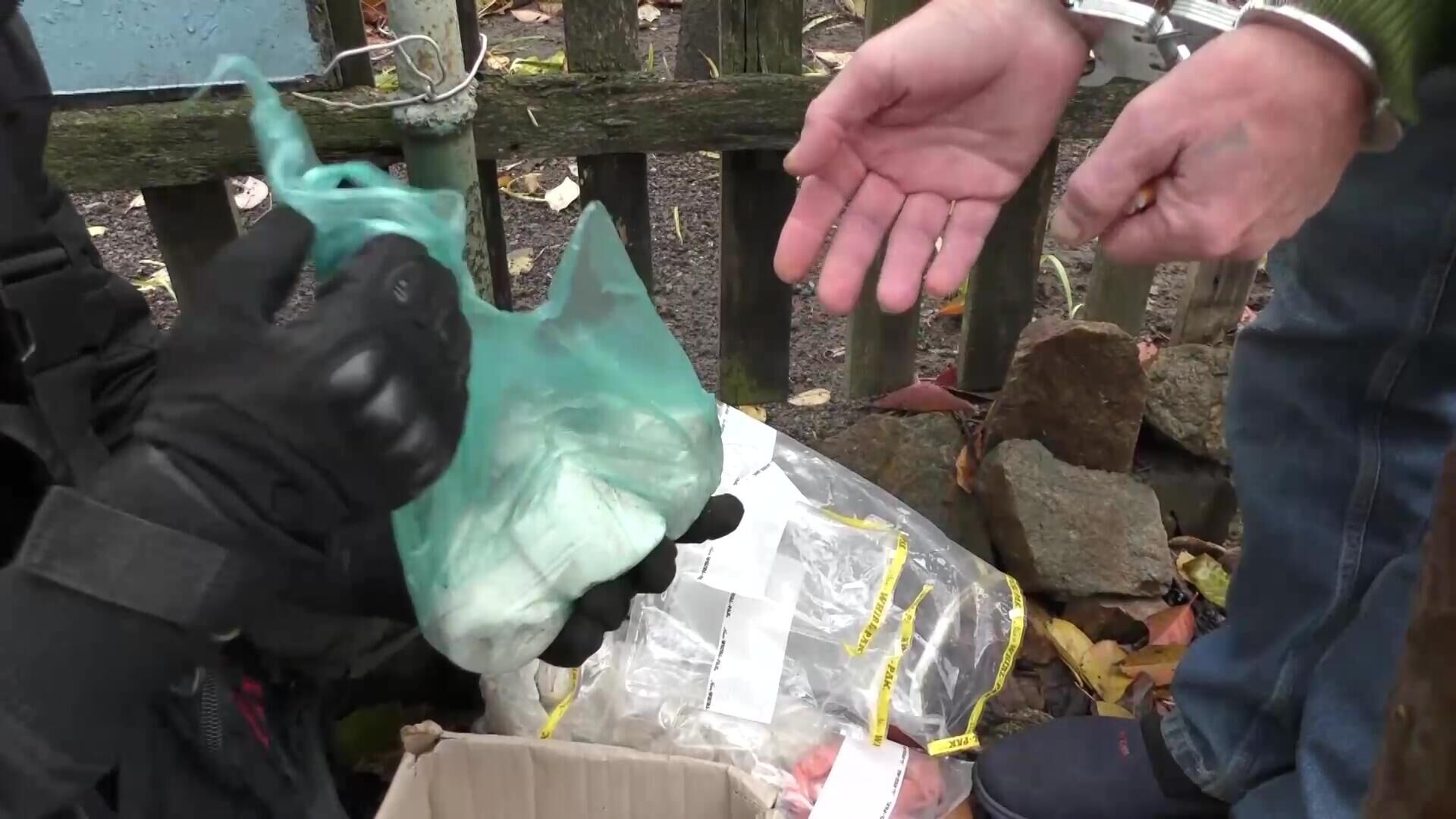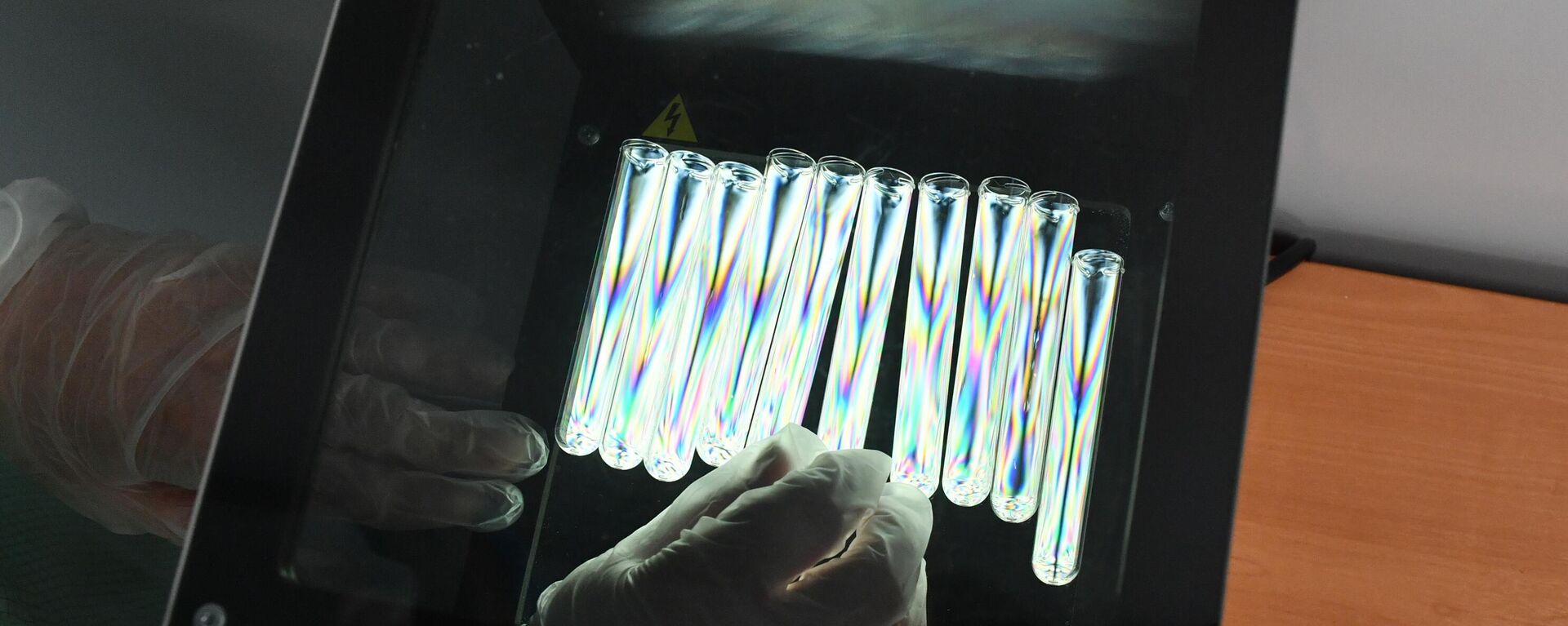https://en.sputniknews.africa/20240227/fsb-thwarts-terrorist-attack-with-use-of-chemical-warfare-agent-in-zaporozhye-region-1065278829.html
FSB Thwarts Terrorist Attack With Use of Chemical Warfare Agent in Zaporozhye Region
FSB Thwarts Terrorist Attack With Use of Chemical Warfare Agent in Zaporozhye Region
Sputnik Africa
MOSCOW (Sputnik) - Earlier, Lt. Gen. Igor Kirillov, the head of the radiation, chemical and biological defense troops of the Russian armed forces, said that... 27.02.2024, Sputnik Africa
2024-02-27T13:03+0100
2024-02-27T13:03+0100
2024-02-27T13:03+0100
russia's special operation in ukraine
russia
united states (us)
zaporozhye
fsb
organisation for the prohibition of chemical weapons (opcw)
chemical weapons
ukraine
terrorist attack
https://cdn1.img.sputniknews.africa/img/07e8/02/1b/1065278969_0:0:1920:1080_1920x0_80_0_0_c05c91058965efb83756fabbbc6ec2bb.jpg
Russia's Federal Security Service (FSB) said on Tuesday that it thwarted a terrorist attack with the use of an analogue of the BZ chemical warfare agent in the Zaporozhye region, adding that three citizens of Ukraine were detained.What is BZ Chemical Warfare Agent?BZ is colorless, tasteless and odorless crystals, practically insoluble in water.The substance was first obtained in the US in 1955. Its psychoactivity was established in 1961, and field tests to determine its combat effectiveness were completed in 1966.The US declared the complete destruction of its BZ stockpile in 1990, when some 50 tonnes of the substance were destroyed. However, as Lt. Gen. Igor Kirillov noted, the US retained the ability to synthesize precursors of the battlefield psychotropic agent BZ on the basis of pharmaceutical production facilities in the amount of up to several dozen tonnes per year.Neither the Soviet Union nor Russia developed such chemical compounds.BZ causes lesions by inhalation, oral and venous-arterial routes. Fatal injuries are not typical for BZ; they may occur only in elderly people, children and people suffering from respiratory diseases.Signs of intoxication include dilated pupils, dry mouth, increased heart rate, dizziness, and muscle weakness. After 30–60 minutes there is a weakening of attention and memory, decreased reactions to external stimuli, and the person loses orientation.In April 2018, Russian Foreign Minister Sergey Lavrov said that a BZ substance could have been used in the poisoning of former Russia's intelligence officer Sergey Skripal and his daughter Yulia in the British city of Salisbury. The top diplomat referred to the Swiss center for radiological and chemical-bacteriological analysis in the city of Spitz, which analyzed OPCW samples from the scene of the incident.
https://en.sputniknews.africa/20240115/1064630029.html
russia
united states (us)
zaporozhye
ukraine
Sputnik Africa
feedback@sputniknews.com
+74956456601
MIA „Rossiya Segodnya“
2024
Sputnik Africa
feedback@sputniknews.com
+74956456601
MIA „Rossiya Segodnya“
News
en_EN
Sputnik Africa
feedback@sputniknews.com
+74956456601
MIA „Rossiya Segodnya“
Sputnik Africa
feedback@sputniknews.com
+74956456601
MIA „Rossiya Segodnya“
russia, united states (us), zaporozhye, fsb, organisation for the prohibition of chemical weapons (opcw), chemical weapons, ukraine, terrorist attack
russia, united states (us), zaporozhye, fsb, organisation for the prohibition of chemical weapons (opcw), chemical weapons, ukraine, terrorist attack
FSB Thwarts Terrorist Attack With Use of Chemical Warfare Agent in Zaporozhye Region
MOSCOW (Sputnik) - Earlier, Lt. Gen. Igor Kirillov, the head of the radiation, chemical and biological defense troops of the Russian armed forces, said that the toxic substance, an analog of the BZ chemical warfare agent, was discovered in late January this year in a cache in the city of Melitopol in the Zaporozhye region.
Russia's Federal Security Service (FSB) said on Tuesday that it thwarted a terrorist attack with the use of an analogue of the BZ chemical warfare agent in the Zaporozhye region, adding that three citizens of Ukraine were detained.
"Russia's Federal Security Service stopped an attempt by the Ukrainian special services to commit a terrorist act in the Zaporozhye region using an analogue of the BZ chemical warfare agent according to the NATO classification. The seized drugs are used to create chemical weapons of mass destruction and were developed in the US. Three citizens of Ukraine were detained," the FSB said in a statement.
What is BZ Chemical Warfare Agent?
BZ is colorless, tasteless and odorless crystals, practically insoluble in water.
The substance was first obtained in the US in 1955. Its psychoactivity was established in 1961, and field tests to determine its
combat effectiveness were completed in 1966.
The US declared the complete destruction of its BZ stockpile in 1990, when some 50 tonnes of the substance were destroyed. However, as Lt. Gen. Igor Kirillov noted, the US retained the ability to synthesize precursors of the battlefield psychotropic agent BZ on the basis of pharmaceutical production facilities in the amount of up to several dozen tonnes per year.
Neither the Soviet Union nor Russia developed such chemical compounds.
BZ causes lesions by inhalation, oral and venous-arterial routes. Fatal injuries are not typical for BZ; they may occur only in elderly people, children and people suffering from respiratory diseases.
Signs of intoxication include dilated pupils, dry mouth, increased heart rate, dizziness, and muscle weakness. After 30–60 minutes there is a weakening of attention and memory, decreased reactions to external stimuli, and the person loses orientation.
In April 2018, Russian Foreign Minister Sergey Lavrov said that a BZ substance
could have been used in the poisoning of former Russia's intelligence officer Sergey Skripal and his daughter Yulia in the British city of Salisbury. The top diplomat referred to the Swiss center for radiological and chemical-bacteriological analysis in the city of Spitz, which analyzed OPCW samples from the scene of the incident.



